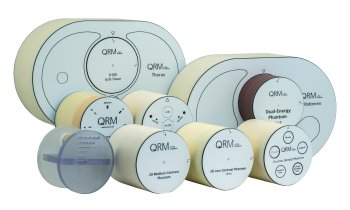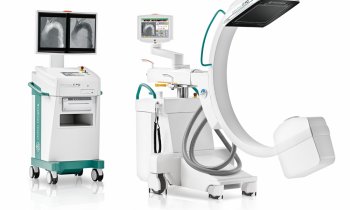Fast track surgery
`The term fast track surgery refers to a combination of findings from current, high quality studies of anaesthetics, surgery and perioperative care for a certain medical indication,´ explained Professor Schwenk.

‘The evaluation of these findings is then transformed into a certain path of treatment followed through all the treatment stages, i.e. from admission to a hospital, all the way to out-patient aftercare. In short, fast track surgery is a procedure specific, evidence based and inter-professionally optimised course of therapy.
‘Although there is already an established procedure for a certain indication, the initial reason why such a treatment path should be developed can be explained using colon surgery as an example. With traditional treatment, postoperative general complications such as pneumonia or cardiovascular complications, tend to occur in every third or forth case. Obviously the question arises as to how these postoperative problems can be minimised. This is the basic question that must be dealt with by all the medical disciplines involved - in this case surgery, anaesthetics, nursing care and physiotherapy. Having looked at medical findings from all over the world, they research and define what can be classed as evidence based and what can then be implemented in hospital. Results are then summarised in a catalogue. In the case of colon surgery, the treatment path is as follows: A patient can drink up to two hours prior to surgery, no colon preparation, regional abdominal anaesthesia via thoracic peridural catheter, additionally general anaesthetic, minimally invasive surgery or transverse opening of the abdominal wall. The patient is aggressively mobilised out of bed by the evening of the day of surgery. There is no infusion or drainage and the patient can eat normally the next day. On the second day after surgery the patient is fully mobilised, and from the fifth day onwards the patient can be discharged. With this treatment plan we have been able to lower the rate of complications in colon surgery to only 10% and have cut the length of individual hospital stays by half.
‘As this treatment plan has resulted in standardisation of processes, even though there are still individual aspects for each patient, it is easier to calculate treatment costs. Deviations from the “normal course” are significantly lower than those occurring with traditional methods, which is particularly important for planning integrated care with doctors in surgeries outside a hospital. Moreover, the treatment path ensures a streamlining of procedures and prevents, for example, redundant examinations. Finally, the lower rate of postoperative complications results in lower follow-on costs.
‘Of course fast track methods require investments, such as intensive staff training, so that the methods can be successfully implemented in practice. Often the structures required for successful implementation must be created, such as the setting up of acute pain services. All in all, these investments pay off in the medium term, particularly for patients.’
So why is ‘fast track’ still infrequently used?
‘The exact number of surgeions fast-tracking patients in Germany is unknown. Only 24 hospitals in Germany are undergoing a joint internal quality assurance programme offered by the Charité. On a European level a working group represents the fast track principle, which is known as Enhanced Recovery After Surgery (ERAS), and hospitals in Denmark, Sweden, Scotland, Norway and The Netherlands are participating in that programme.
‘We mustn’t forget that there are probably some hospitals already using this method without being aware of it and without having a specific term for it. I believe fast track surgery will gain more importance in the future and that it will also be implemented for other medical indications. But, whoever opts for fast track needs to be aware that the method has to be continuously advanced. Once developed, any treatment path must be checked regularly to include any relevant new findings. Fast track surgery is a continuous process that adapts to new medical findings.’
01.05.2007









